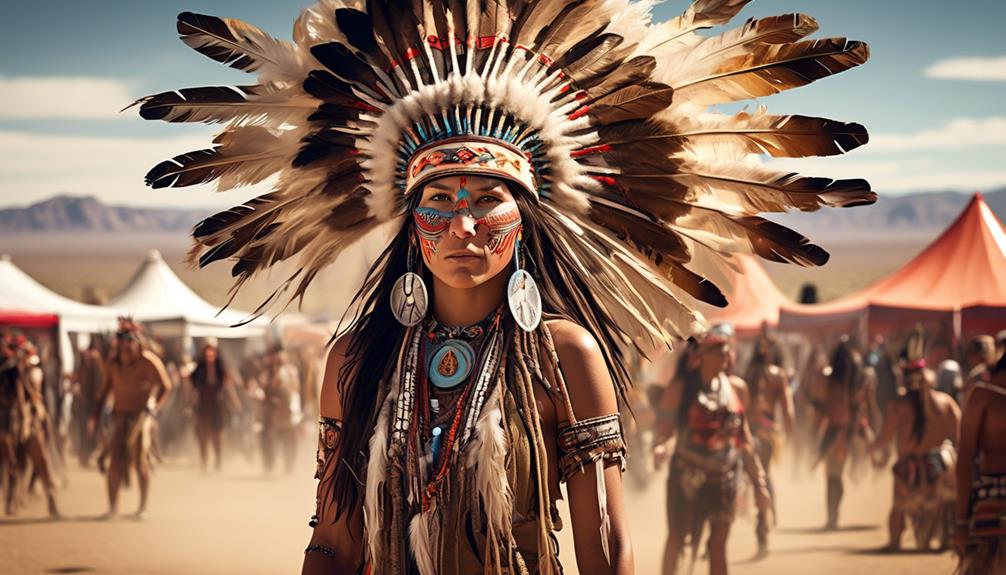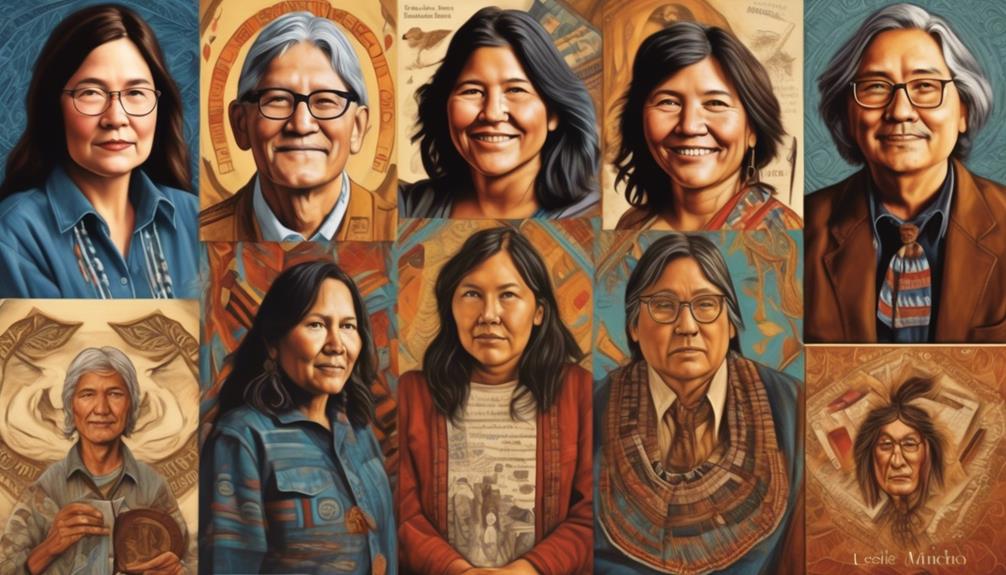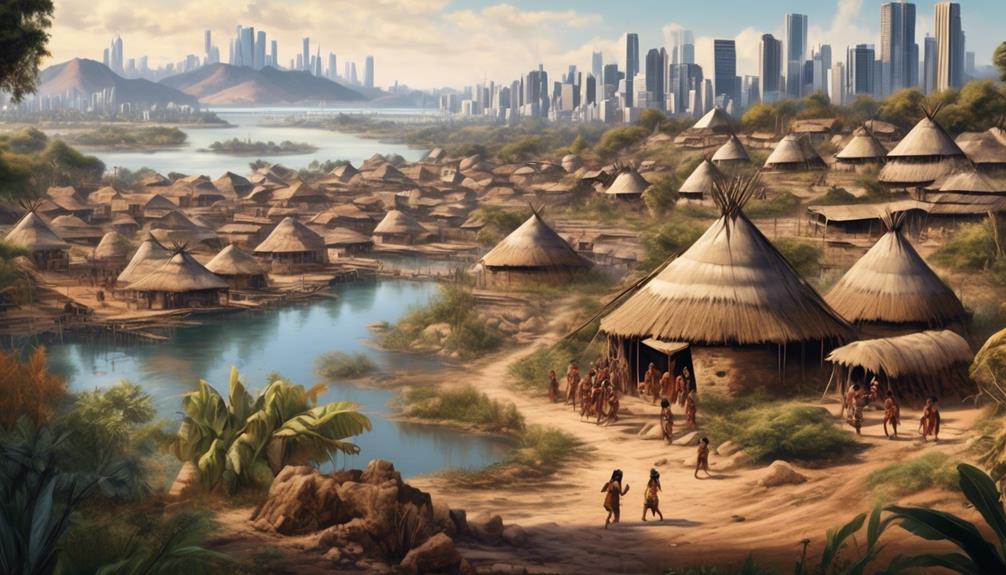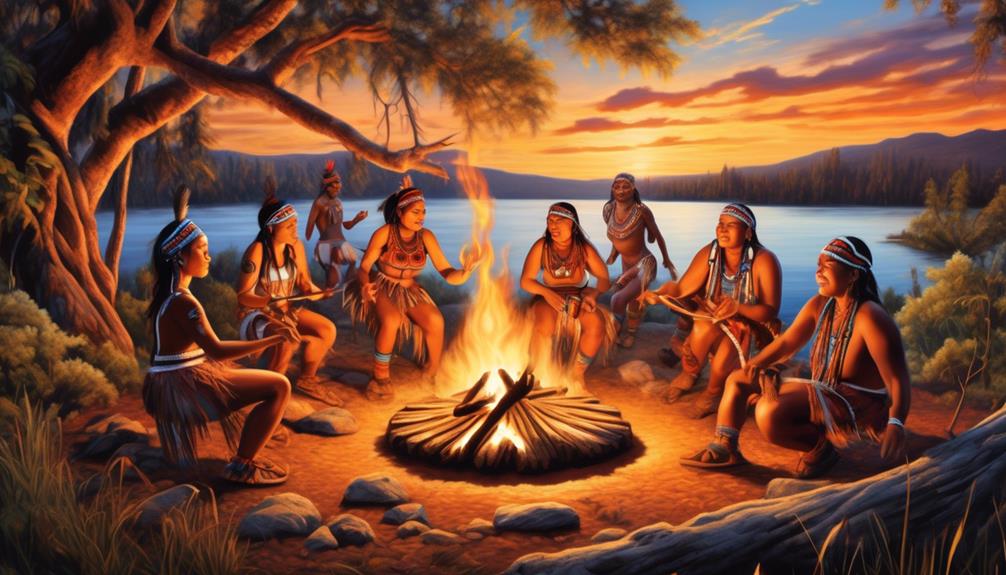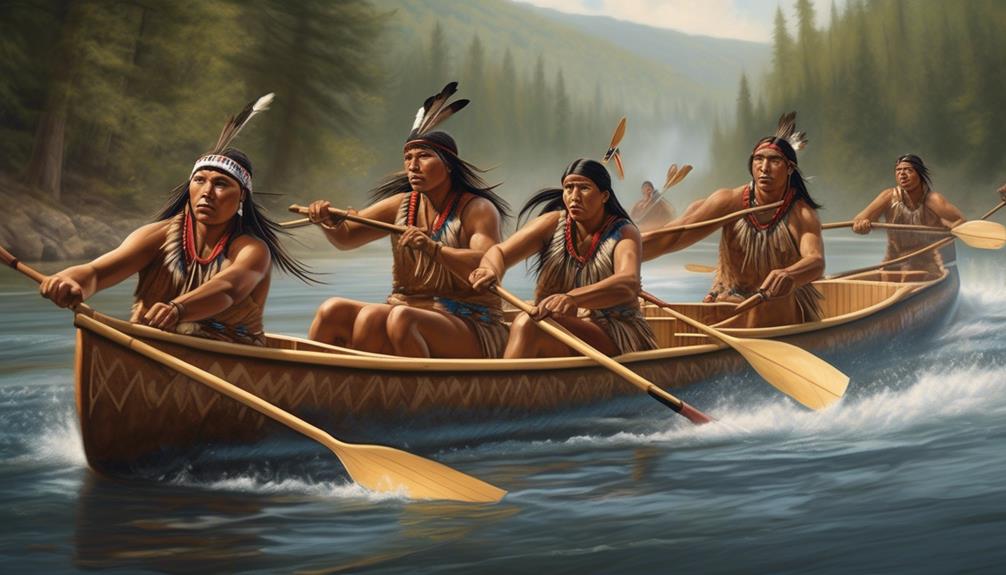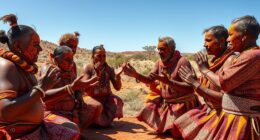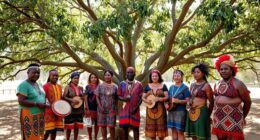Within the extensive landscape of the Black Rock Desert, there exists a lively display of creativity and self-expression. However, amidst the mesmerizing music and impressive art installations, a question lingers: Have there been accusations of cultural appropriation from indigenous communities directed towards the Burning Man Festival?
The allegations have sparked a contentious debate, raising crucial concerns about the intersection of artistic freedom, cultural sensitivity, and the impact of such festivities on indigenous communities. Join us as we unravel the complexities surrounding this controversial issue and explore the implications for one of Nevada's most renowned events.
Key Takeaways
- Burning Man Festival in Nevada has been accused of appropriating indigenous cultures.
- The festival has faced allegations of incorporating sacred indigenous symbols and practices without understanding or respect.
- There is a lack of meaningful representation and inclusion of indigenous voices at the event.
- The commercialization of indigenous aesthetics and spirituality for profit has been a major concern.
Origins of Burning Man Festival
The origins of the Burning Man Festival can be traced back to a small gathering of friends on a San Francisco beach in 1986. It emerged from countercultural roots, evolving into an annual event attracting thousands to the remote Black Rock Desert in Nevada.
This desert gathering is a celebration of radical self-expression, art, and community. The ethos of Burning Man is rooted in principles such as self-reliance, inclusion, and decommodification. Participants are encouraged to create and display art, share skills and resources, and engage in a gifting economy.
The event's name is inspired by the burning of a large wooden effigy, symbolizing a cathartic release and renewal. Over the years, the festival has grown in size and popularity, drawing individuals from diverse backgrounds and cultures.
Despite its transformation, the essence of Burning Man remains deeply connected to its countercultural origins. It continues to provide a space where participants can experience a temporary community that fosters creativity, self-expression, and communal cooperation.
Cultural Appropriation Allegations
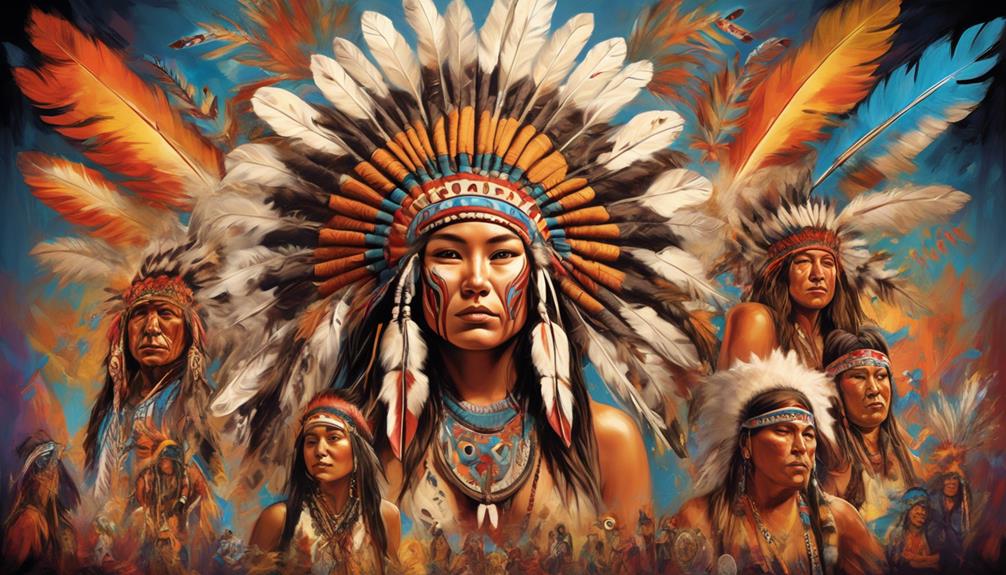
As we explore the evolution of the Burning Man Festival, it's important to address the recent cultural appropriation allegations that have surfaced. The festival has faced criticism for cultural insensitivity and appropriating indigenous cultures in various aspects of its event. This has sparked intense debate and raised important questions about the festival's responsibility to respect and honor diverse cultural traditions.
| Allegation | Details | Response |
|---|---|---|
| Cultural Appropriation | The festival has been accused of incorporating sacred indigenous symbols and practices into its art and activities without proper understanding or respect for their significance. | Organizers have acknowledged the concerns and committed to engaging with indigenous communities to ensure cultural sensitivity and authenticity in future events. |
| Lack of Representation | Critics have highlighted the lack of meaningful representation and inclusion of indigenous voices and perspectives within the festival's leadership and programming. | The festival has pledged to actively involve indigenous individuals and communities in decision-making processes and to showcase their cultural heritage respectfully. |
| Commercialization | Some have argued that the festival's commercialization of indigenous aesthetics and spirituality for profit is disrespectful and perpetuates harmful stereotypes. | Steps are being taken to address these concerns by fostering educational initiatives and supporting indigenous artists and causes within the festival. |
These festival controversies have prompted a necessary dialogue about cultural appropriation and the importance of promoting cultural understanding and respect within large-scale events like Burning Man. It is crucial for the festival to demonstrate a genuine commitment to addressing these allegations and implementing meaningful changes to ensure that it upholds ethical and inclusive practices.
Indigenous Representation at the Event
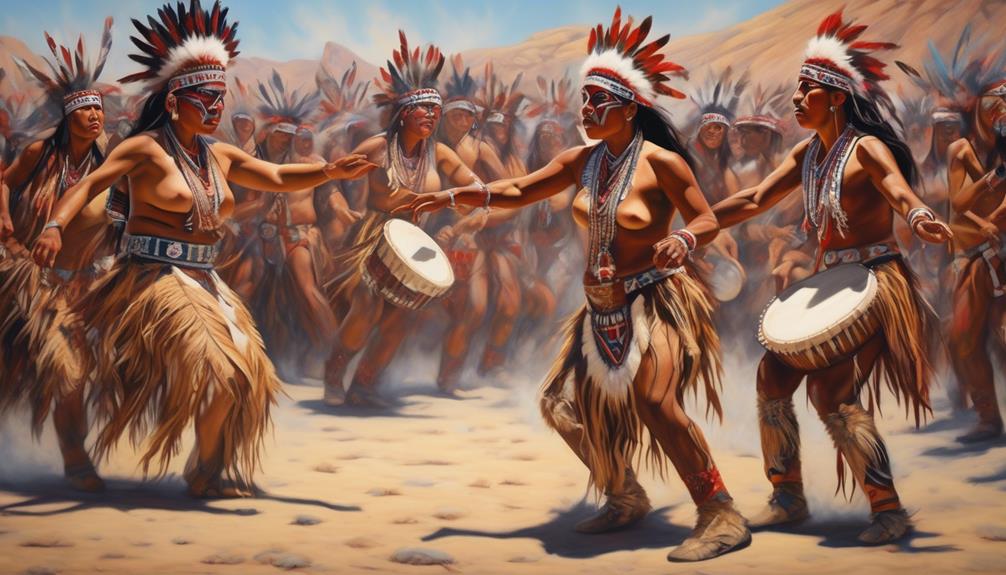
With a focus on ensuring meaningful representation, we're actively engaging indigenous individuals and communities in the leadership and programming of the event. This commitment to indigenous inclusion is fundamental to our ethos, ensuring that the festival serves as a platform for authentic cultural exchange and celebration.
To achieve this, we've implemented the following strategies:
- Community Collaboration
- Establishing ongoing dialogues with indigenous communities to co-create programming that reflects their traditions and perspectives.
- Actively seeking input and feedback from indigenous leaders and cultural experts to ensure the event is respectful and inclusive.
Through these efforts, we aim to foster an environment where indigenous voices aren't only heard but also given the platform to showcase their rich cultural heritage. Our goal is to create an event where attendees can engage in meaningful cultural exchange while gaining a deeper understanding and appreciation of indigenous traditions.
We recognize the importance of authentic representation and are dedicated to continuously improving and evolving our approach to indigenous inclusion at the festival.
Impact on Indigenous Communities
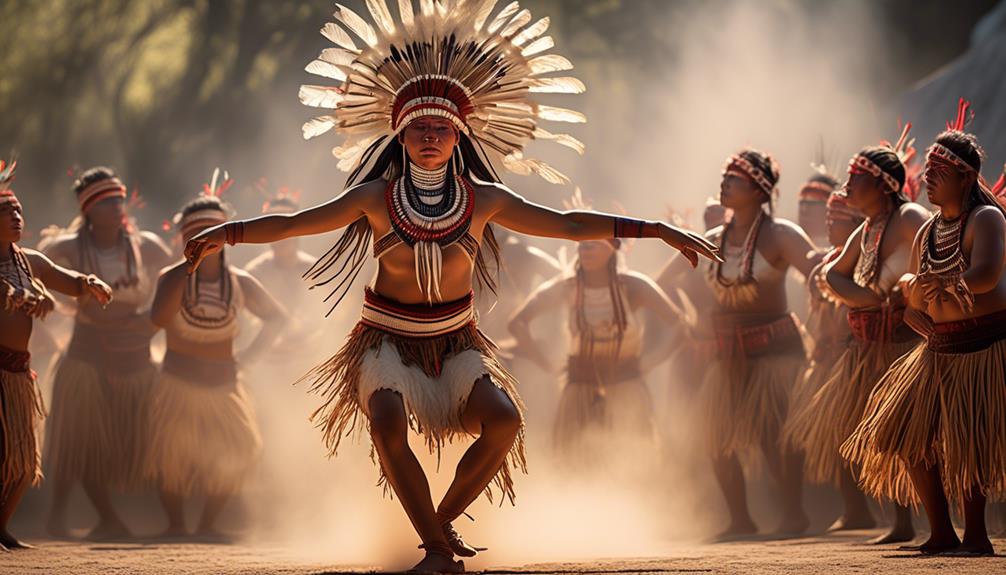
Continuing our commitment to meaningful indigenous representation, we are now examining the impact on indigenous communities resulting from our festival. Our festival's influence on indigenous communities is a crucial aspect that demands attention. It is imperative to acknowledge the potential consequences of our event and work towards mitigating any negative effects on these communities.
| Challenges Faced by Indigenous Communities Due to the Festival | Impact on Indigenous Rights | Strategies for Cultural Preservation |
|---|---|---|
| Misappropriation of sacred symbols and rituals | Violation of indigenous rights to cultural heritage | Engaging indigenous communities in festival planning and execution |
| Economic exploitation through the commercialization of indigenous culture | Undermining indigenous autonomy and self-determination | Providing platforms for indigenous artists and performers to showcase their authentic culture |
| Dissemination of inaccurate or stereotypical information about indigenous cultures | Erosion of cultural identity and traditions | Supporting indigenous-led initiatives for cultural revitalization and preservation |
Our festival must prioritize the protection of indigenous rights and the preservation of their cultures. By actively involving and supporting indigenous communities, we can ensure that our event contributes positively to their well-being and cultural heritage.
Addressing Cultural Sensitivity
Our festival is committed to actively addressing cultural sensitivity to ensure that all participants and communities involved feel respected and valued. It's imperative for us to foster an environment of understanding and appreciation for diverse cultures.
To achieve this, we've implemented the following strategies:
- Cultural Education: We're dedicated to providing educational resources and workshops that delve into the rich traditions and histories of the indigenous communities relevant to our festival. These initiatives aim to increase awareness and understanding among our attendees, fostering a more inclusive and respectful environment.
- *Expert-Led Sessions*: We've invited respected cultural experts and elders to lead sessions on indigenous traditions, allowing for a deeper understanding and appreciation of their cultural practices.
- Respectful Celebration: Our festival endeavors to celebrate indigenous cultures in a manner that's respectful and honors their traditions. We've implemented guidelines and protocols to ensure that our festivities align with the values and customs of the indigenous communities we represent.
Frequently Asked Questions
What Are Some Specific Examples of Cultural Appropriation That Have Been Alleged at the Burning Man Festival in Nevada?
Examples of cultural appropriation at Burning Man include wearing sacred Native American headdresses and misusing spiritual symbols. Such actions have a significant impact, perpetuating harmful stereotypes and disrespecting indigenous cultures.
Addressing these allegations requires a commitment to cultural sensitivity, understanding the historical and cultural significance of these practices, and engaging in meaningful dialogue with indigenous communities to foster respect and understanding.
How Have Indigenous Communities Been Involved in the Planning and Organization of the Burning Man Festival?
Indigenous involvement in the Burning Man festival has been crucial for fostering cultural exchange. Their participation in the planning and organization ensures respectful representation and collaboration.
Their input enriches the festival experience, promoting understanding and appreciation of indigenous cultures. This involvement also allows for meaningful dialogue and partnership, benefiting both the festival and indigenous communities.
Such engagement is essential for creating a more inclusive and authentic experience for all participants.
What Efforts Has the Burning Man Festival Made to Support and Uplift Indigenous Communities in the Surrounding Area?
We've made extensive efforts to support and uplift indigenous communities in the surrounding area. Our initiatives include collaborating with indigenous groups for cultural programming, providing financial support for community projects, and offering educational opportunities.
We're committed to amplifying indigenous voices and honoring their traditions. These efforts aim to foster meaningful relationships and mutual respect, ensuring that indigenous communities are integral to the festival's fabric.
How Have Indigenous Activists and Leaders Responded to the Cultural Appropriation Allegations at the Burning Man Festival?
Indigenous activism and cultural sensitivity are crucial to address festival impact.
It's important to listen and learn from indigenous leaders' responses to cultural appropriation allegations at Burning Man. Their perspectives can guide us in creating a more respectful and inclusive festival environment.
We must acknowledge the impact of cultural appropriation and work towards fostering a space that honors and uplifts indigenous cultures.
What Steps Has the Burning Man Festival Taken to Educate Attendees About Cultural Sensitivity and Respect for Indigenous Cultures?
Cultural education at events like Burning Man is crucial. Our team ensures event impact aligns with respect for indigenous cultures.
We've implemented workshops, speakers, and art installations that highlight indigenous traditions and histories. This fosters a deeper understanding and appreciation among attendees.
Conclusion
As we reflect on the accusations of cultural appropriation at the Burning Man Festival, let's remember that just as a wildfire can consume everything in its path, so too can the thoughtless appropriation of indigenous cultures.
It's important for us to approach cultural exchange with respect and understanding, like a gentle breeze nurturing the seeds of mutual appreciation and collaboration.
Let's work together to create a space where all cultures can thrive and grow harmoniously.
